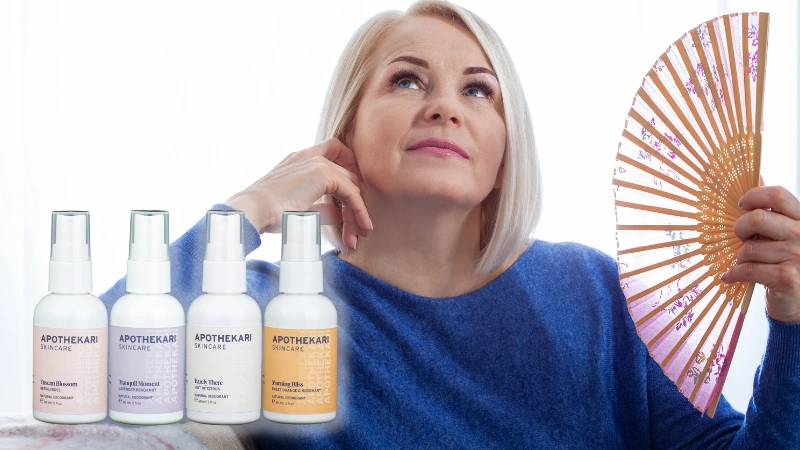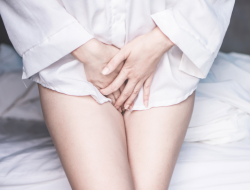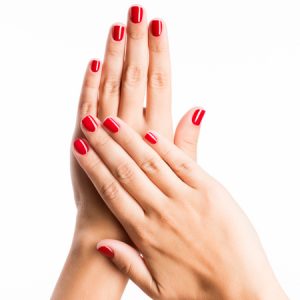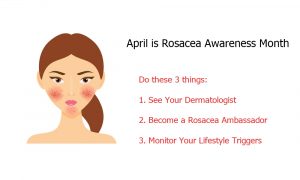If you’re a woman, the menopause transition can bring about many changes in your body, influenced mainly, by shifts in your hormone levels.
While we’re all familiar with hot flashes and mood swings, you may be experiencing many other unwelcome symptoms, including menopause odor—or changes in the way that you normally smell. One day, you may wake up and detect a different odor, not just in your armpits and feet, but also your groin. You may wonder what the heck is happening, especially in addition to many of the other unexpected symptoms that you’re suddenly having to cope with. Let’s look at what’s behind these changes, the impact they can have on your confidence and discuss options about how to help minimize odor during menopause and beyond.
Body Odor Menopause. Why Do I Smell So Bad?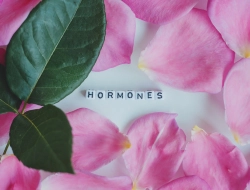
During menopause, women experience a drop in in estrogen levels. The estrogen hormone plays a crucial role in regulating body temperature and controlling sweat gland activity. And, as estrogen levels decline, the production of sweat and the composition of sweat changes, leading to alterations in body odor. The menopausal drop in estrogen affects the apocrine glands, which are responsible for producing sweat that contains proteins and fats, compounds that interact with bacteria on the skin’s surface, leading to the release of distinct odors. This is in comparison to the eccrine glands, which are located all over the body and which secrete a clear thin watery sweat, that doesn’t contain nourishment for odor causing bacteria. As a result, menopause odor from sweating may have a stronger, more pungent smell compared to before.
Where Can You Get Body Odor During Menopause?
Human body odor is a normal (albeit annoying) human experience that occurs at every stage of life. You can get menopause body odor anywhere you normally sweat, like your armpits and groin. That said, you may notice that you smell in, well, places you’re just not used to smelling bad. During menopause, the drop in estrogen can lead to an increased vaginal pH. Normal vaginal odors are mild or odorless, but if you notice that the smell is “fishy” or stronger in general, it may be time to see your doctor.
Does Menopause Cause More Body Odor?
Hormone imbalances and body odor often go together. Dips in estrogen can trigger hot flashes and night sweats, meaning you simply sweat more, which in turn can result in more odor. This is also a time of life filled with high levels of anxiety or stress, which can make you sweat, too. The shift in hormonal balance that occurs during menopause can lead to stronger body odor. Estrogen and progesterone levels fall relative to your testosterone, while cortisol tends to increase. Higher levels of both testosterone and cortisol have been linked to stronger body odor. You may also notice bad smells in places that didn’t smell bad before, including the skin around your vagina. This may necessitate a visit to your doctor. More on this below.
Why Do My Armpits Smell Now That I’m Older?
You may be surprised to learn that your body odor naturally changes as you age. In addition to hormonal changes that may be occurring—a drop in estrogen along with relatively higher levels of testosterone—there may also be increased levels of a compound called 2-nonenal, which has an unpleasant greasy and grassy odor and which tends to be detected only in people aged 40 or more. It’s no wonder that your armpits—along with other body parts—may start smelling funkier than before.
Why Can I Smell Myself Even After a Shower?
Bacteria love hiding in hair! If you still smell a strong body odor after a bath or a shower, using a good cleanser or soap, consider shaving the hair in your armpits, groin, and chest. The hair’s surface is a perfect place for bacteria to call home, and it’s harder to eliminate them from the hair than your bare skin.
Why Do I Smell Down There Even After I Shower?
Vaginal odor can be caused by diet, sweating, menstruation, pregnancy, or menopause. It can sometimes also be caused by infections like bacterial vaginosis or trichomoniasis.
Can Menopause Cause a Fishy Odor?
When estrogen levels fall, it leads to a decrease in the levels of Lactobacillus bacteria, which are protective to the vaginal area.Estrogen also helps to maintain the acidity of the vagina, preventing the overgrowth of harmful bacteria and maintaining a healthy balance of microorganisms. The disruption in pH balance can lead to an increase in harmful microbes, that produce “smelly” molecules, that now thrive within the vaginal microbiome, causing changes in vaginal odor.
These changes in body odor can have a significant impact on your self-esteem and confidence, leaving you feeling self-conscious and uncomfortable, especially in social situations. It’s important to address these concerns to ensure that you maintain a positive body image and overall well-being during menopause.
How Can I Stop My Body From Smelling During Menopause?
Hot flashes and night sweats can’t be ruled out completely, and there’s very little that you can do to alter changing hormone levels. However, there are a few things that you can do to help minimize menopause odor, specifically:
-
Stave off Dehydration. Hot flashes may have you sweating more, contributing to dehydration during menopause. If you’re not drinking enough water to make up for the loss, your body fluids become more concentrated. This applies not only to your sweat, but also your urine. Concentrated urine is dark in color; concentrated sweat leads to a more potent smell when the bacteria have their way with it.
-
Stress Less. For many women, the menopause transition can be stressful. Hot flashes, mood changes (anxiety, depression, rage), forgetfulness and sleeplessness all disrupt your life in not so good ways. Stress sweat comes from your apocrine glands and compared to body-cooling sweat, (which is produced by eccrine glands), is thicker and richer in nutrients, which bacteria thrive on, leading to an increase in menopause odor.
-
Ditch the Synthetics. Nylon, polyester and other synthetic fabrics cause you to sweat more. They also can retain body odor more. Opt for breathable fabrics like cotton, wool, linen or silk, which help you stay cooler and drier, and don’t retain odors as much.
-
Pay Attention to What You Eat. Some foods and drinks can lead to more pungent body odor. This includes meat, spicy foods, caffeine, garlic, onions and alcohol. It’s not the same for everyone so experiment to see if eliminating any helps.
What Home Remedy is Good for Body Odor During Menopause?
There are many natural remedies to consider, including:
- Black cohosh
- Ginseng
- Kava
- Red clover, and
- Evening primrose oil
Although often recommended to help with the sweating that may lead to menopause odor, there’s not a ton of research proving that they work.
Which Deodorant is Best for Menopause Odor?
You wouldn’t be here if you haven’t noticed that your body is starting to smell differently, regardless of whether you’re at or approaching menopause. If you’re finding that the deodorant or anti-perspirant that you’ve been using for years isn’t cutting it any longer to help manage menopause odor, you’re going to feel more self-conscious. For the reasons explained above, even the feeling in your armpits may be different—stickier and heavier. While these changes may be normal, they’re not necessarily pleasant so it may be time to try something new. When it comes to odor control, you have 2 main options:
- Anti-perspirants contain ingredients like aluminum salts that help reduce perspiration. These compounds work by temporarily blocking or narrowing sweat ducts, thereby reducing the amount of sweat that reaches the skin’s surface. By minimizing sweat production, antiperspirants indirectly contribute to reducing menopause odor or other body odor as there is less moisture available for bacterial activity.
- Deodorants, like our range of spray deodorants, which work in several ways to combat menopause odor:
- Mask Odor: Fragrances or essential oils with pleasant scents are used to cover up any unwanted smells, providing a more appealing scent. (Often these can smell like fake flowers covering up funky smells – eww no thanks)
- Antimicrobial Action: It’s the bacteria that live on your skin that down sweat into smelly compounds, which lead to body and menopause odor. Ingredients like triclosan, alcohol, or tea tree oil reduce the bacterial population, minimizing the production of unpleasant odors.
- pH Adjustment: Sweat is naturally slightly acidic, and this acidity helps inhibit the growth of odor-causing bacteria. Deodorants with slightly acidic formulations (low pH), like ours, create an environment on the skin’s surface that is less favorable for bacterial growth, reducing odor. Conversely, you can have alkaline formulations (high pH) which also do that. However, high pH deodorants, like the ones that contain baking soda, often are highly irritating to skin, leading to rashes and redness.
- Odor Neutralization: Some deodorants utilize ingredients that directly target and neutralize odor-causing compounds. For instance, activated charcoal or odor neutralizing enzymes can absorb and/or neutralize odor molecules, helping to eliminate unpleasant smells.
- Probiotics: Help to increase the concentration of non-odor producing bacteria.
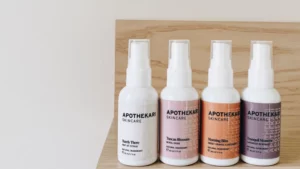 Apothekari’s Natural Spray Deodorants to the Rescue for Menopause Odor!
Apothekari’s Natural Spray Deodorants to the Rescue for Menopause Odor!
Our triple odor protection formulation contains:
- Alpha Hydroxy Acid to keep odor causing bacteria in check
- Probiotics to increase the concentration of non-odor causing bacteria, and
- Odor Neutralizing Enzymes to attack odor at its root cause.
Our formulation is gentler on the skin compared to traditional aluminum-containing anti-perspirants. And this is important because menopausal skin may become more sensitive, and harsh chemicals found in some anti-perspirants can cause irritation or discomfort. When it comes to managing menopause odor, lifestyle changes along with choosing the right deodorant is essential.
Acid-based deodorants offer several advantages over other types, including baking soda or traditional aluminum-based anti-perspirants. By regulating the skin’s pH, they help to control odor-causing bacteria, and provide a gentler way to effectively tackle menopausal body odor without irritating skin.
When to Get Help With Body Odor
These are some reasons to see your doctor:
- If you can’t find relief from excessive sweating and body odor or if your sweating is interfering with your life.
- If you notice a fishy odor in or around your vagina, you may be dealing with an infection.
- A fruity odor, which could be a sign of diabetes.
- A bleach smelling odor, which may indicate kidney or liver disease.
Some medical conditions can be serious and it’s best to rule them out.



